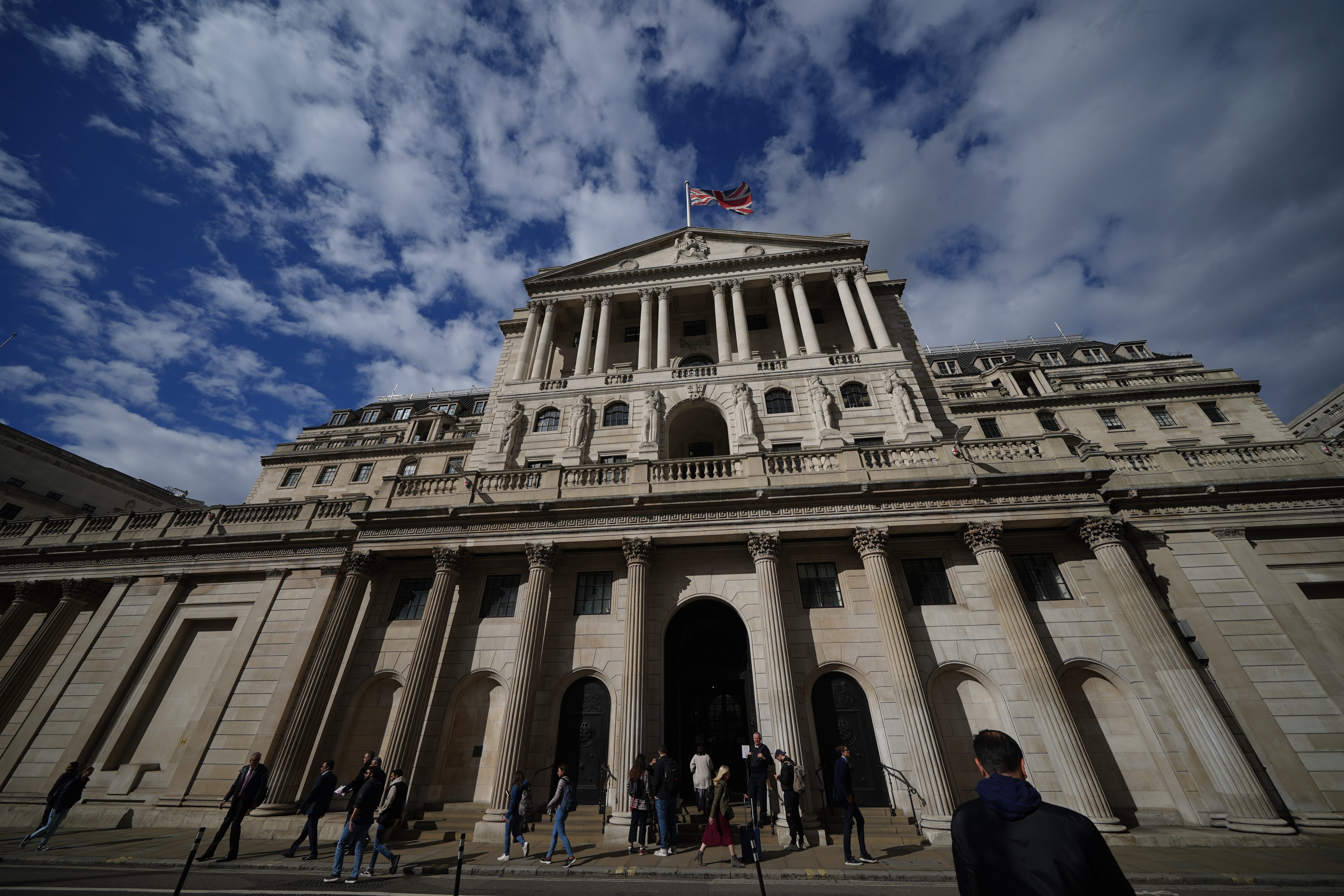How long will the recession last in the UK?
The answers to some of the top trending questions following the Chancellor’s autumn statement.

Chancellor Jeremy Hunt’s autumn statement has caused a spike in Google searches about the economy.
The trending search terms include everything from what the OBR stands for to what the new rate is for the state pension.
Here are the top trending questions about the autumn statement, and some answers:
How long will the recession last in the UK?
The Bank of England forecasted last month that the country could be at the start of an eight-quarter recession, the longest since reliable records began in the 1920s.
Gross domestic product (GDP) could shrink for every quarter for two years, with growth only coming back in the middle of 2024.
The economy has faced similarly long recessions in the past, but then the quarterly drops have been broken up with an occasional positive quarter.
What does inflation mean?
At its heart, inflation is a way of checking how quickly prices are rising for households across the UK.
It is an average across many categories, so if food prices rise, that could still be offset by drops in, say, the price of petrol.
Who dictates inflation prediction?
The Office for National Statistics (ONS) is tasked with estimating the UK inflation rate.
It has a basket of goods and services that it tracks. It might be helpful to think of this as a massive shopping basket containing what the ONS thinks that people in the UK buy.
It includes around 730 items, anything from dating agency fees to condoms, wild bird seed to petrol, and crumpets to pet food.
The ONS’ researchers take an average of the increase or decrease of the items’ prices from a year ago – and this is the inflation rate.
What was the rate of inflation in September 2022?
In September 2022 the rate of inflation was 10.1%, the same as the previous month.
What inflation rate is used for the state pension?
September’s inflation figures are traditionally used to set the state pension.
What is the new rate for the state pension?
Pensions are predicted by a triple lock which means that people’s pensions will increase in line with whichever is the highest of three measures: average wage growth, consumer price inflation, or 2.5%.
In his autumn statement, Mr Hunt committed to increase the state pension and benefits in line with September’s 10.1% inflation figure.
This means that the state pension should increase from £185.15 per week to £203.85 per week from April 2023 for those on the new full rate.
For those on the full, old basic state pension, who reached state pension age before April 2016, the increase means a weekly rise from £141.85 to £156.20.
What is a windfall tax?
A windfall tax is a tax levied on an unexpectedly large profit.
The oil and gas industry have made record profits in the UK following the outbreak of the war in Ukraine.
Mr Hunt said he would increase the oil and gas windfall tax from 25% to 35% from the start of next year.
However, he levied an even higher windfall tax on wind farms, with an extra 45% charge on their profits.
What does OBR stand for?
OBR stands for the Office for Budget Responsibility.
The OBR produces independent forecasts about the future of the UK’s economy.
It was created in May 2010 by newly-elected chancellor George Osborne following the general election.
Bookmark popover
Removed from bookmarks